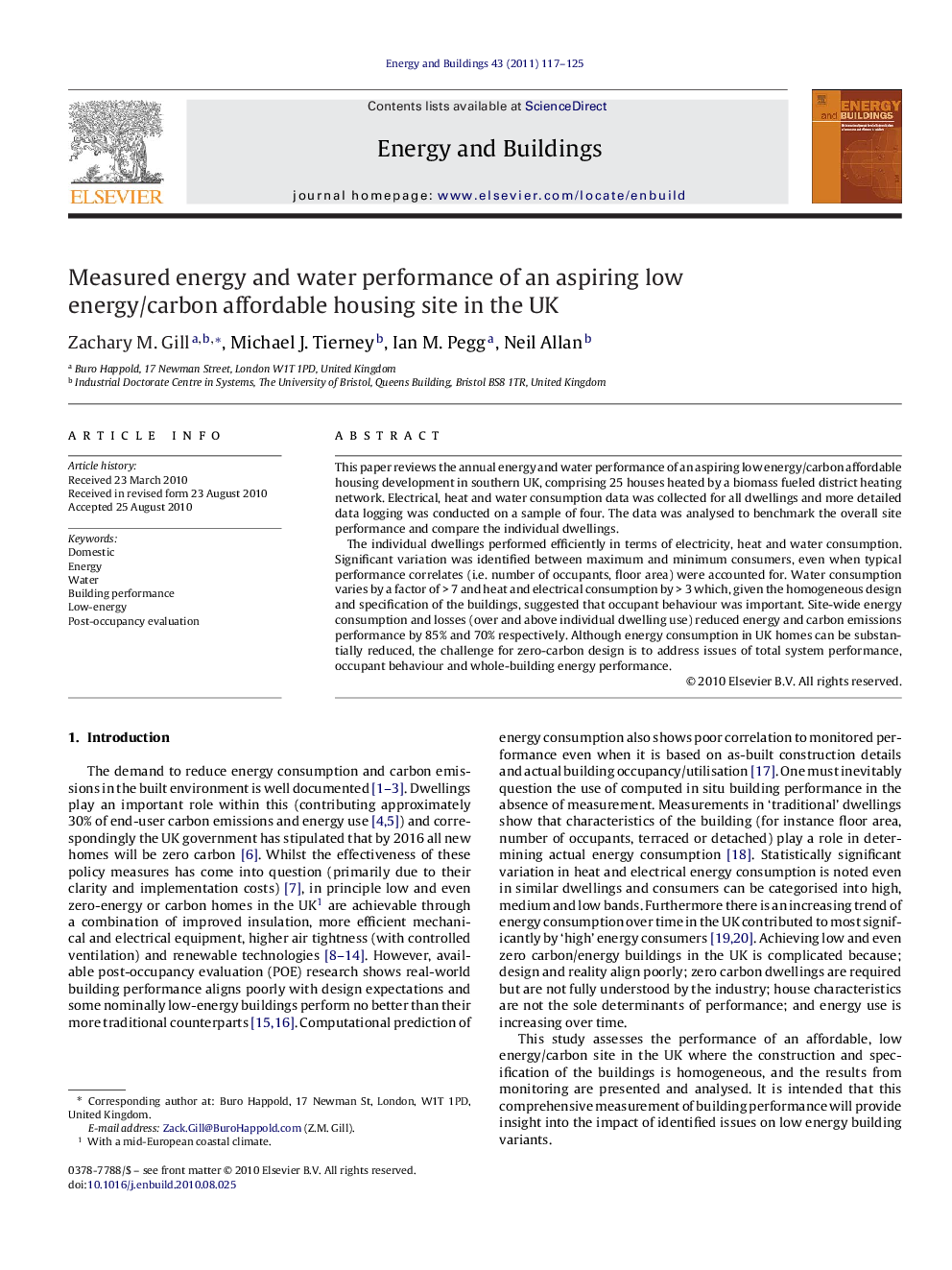| کد مقاله | کد نشریه | سال انتشار | مقاله انگلیسی | نسخه تمام متن |
|---|---|---|---|---|
| 264453 | 504101 | 2011 | 9 صفحه PDF | دانلود رایگان |

This paper reviews the annual energy and water performance of an aspiring low energy/carbon affordable housing development in southern UK, comprising 25 houses heated by a biomass fueled district heating network. Electrical, heat and water consumption data was collected for all dwellings and more detailed data logging was conducted on a sample of four. The data was analysed to benchmark the overall site performance and compare the individual dwellings.The individual dwellings performed efficiently in terms of electricity, heat and water consumption. Significant variation was identified between maximum and minimum consumers, even when typical performance correlates (i.e. number of occupants, floor area) were accounted for. Water consumption varies by a factor of > 7 and heat and electrical consumption by > 3 which, given the homogeneous design and specification of the buildings, suggested that occupant behaviour was important. Site-wide energy consumption and losses (over and above individual dwelling use) reduced energy and carbon emissions performance by 85% and 70% respectively. Although energy consumption in UK homes can be substantially reduced, the challenge for zero-carbon design is to address issues of total system performance, occupant behaviour and whole-building energy performance.
Research highlights▶ Occupant behaviour, in some houses, undermined overall performance and compliance with standards and design expectations. ▶ The impact of associated site-wide energy consumption severely reduces the average dwelling performance and should be considered thoroughly in modern developments. ▶ Estimated energy use outside the scope of UK regulations, was the most important cause of carbon emissions (37–45%). ▶ Zero carbon design must deal with issues of occupant behaviour, unregulated energy use, and associated energy use and should be informed by real world research.
Journal: Energy and Buildings - Volume 43, Issue 1, January 2011, Pages 117–125